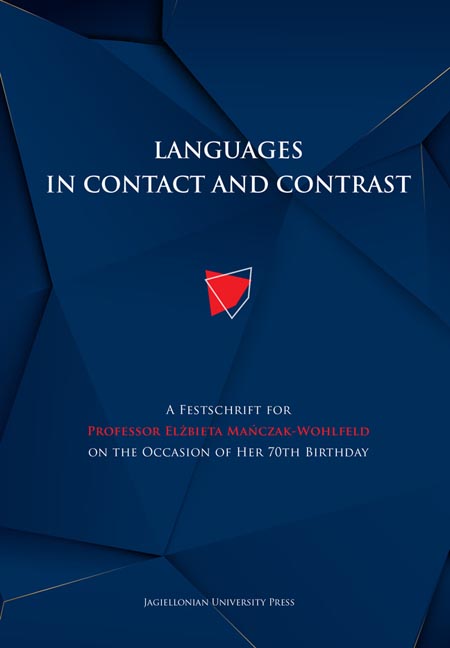 Languages in Contact and Contrast
Languages in Contact and Contrast Published online by Cambridge University Press: 14 October 2023
The fascination of English and the notion of anglicism
It has been stated that “contact with English can lead to rather unpredictable outcomes” (Peterson and Beers-Fägersten 2018: 106). I hope that this paper will shed some light on present and future scenarios regarding the English influence on European languages, taking the Danish speech community as my main point of reference.
However, instead of merely analysing the present situation in Denmark – a de facto bilingual country where all adults have at least a minimal command of English – as a possible yardstick for the (future) situation in the rest of Europe, I have studied the influence of English on Afrikaans. This Germanic language, based on 17th-century Dutch, yet officially recognised only since 1925, has been spoken all over South Africa for centuries now – always influenced by English and always defended by its speakers, in particular the white Afrikaners.
This paper will discuss a number of linguistic features that represent different outcomes of intimate contact with English – the first language in human history that has managed to make an impact on practically all the world’s languages. In some European speech communities, for example France and Iceland, English is the language one loves to hate and half-heartedly seeks to rein. In other countries, non-reciprocal love for English is the order of the day, with Italy as a typical example: In a discussion of his countrymen’s faible for English having caused the rich inventory of pseudo-anglicisms in Italian, lexicographer Cristiano Furiassi sees pseudo-English expressions like I know my chickens, a calque of the Italian idiom ‘conosco i miei polli’, as a demonstration of “how English itself not only is undoubtedly Italians’ favourite donor language, but also acts as a model which inspires English-like phrasemes, hence showing the openness of the Italian language to the pervasive presence of English in everyday usage” (Furiassi 2018: 109). Outside Italy, this openness – whether officially sanctioned or not – is found in many European Germanic speech communities, including Denmark.
To save this book to your Kindle, first ensure [email protected] is added to your Approved Personal Document E-mail List under your Personal Document Settings on the Manage Your Content and Devices page of your Amazon account. Then enter the ‘name’ part of your Kindle email address below. Find out more about saving to your Kindle.
Note you can select to save to either the @free.kindle.com or @kindle.com variations. ‘@free.kindle.com’ emails are free but can only be saved to your device when it is connected to wi-fi. ‘@kindle.com’ emails can be delivered even when you are not connected to wi-fi, but note that service fees apply.
Find out more about the Kindle Personal Document Service.
To save content items to your account, please confirm that you agree to abide by our usage policies. If this is the first time you use this feature, you will be asked to authorise Cambridge Core to connect with your account. Find out more about saving content to Dropbox.
To save content items to your account, please confirm that you agree to abide by our usage policies. If this is the first time you use this feature, you will be asked to authorise Cambridge Core to connect with your account. Find out more about saving content to Google Drive.